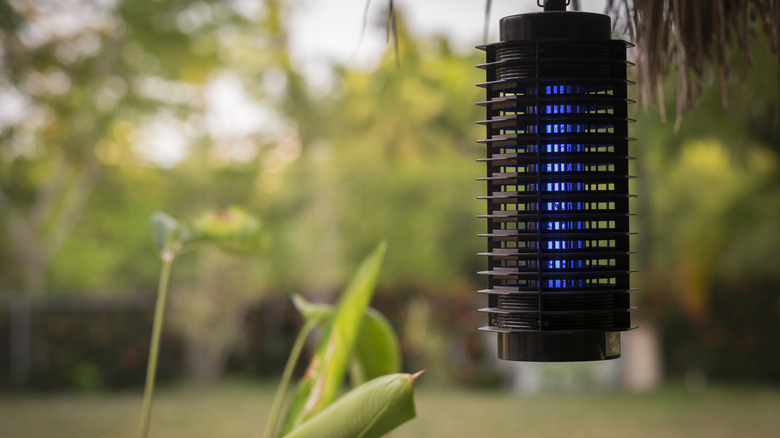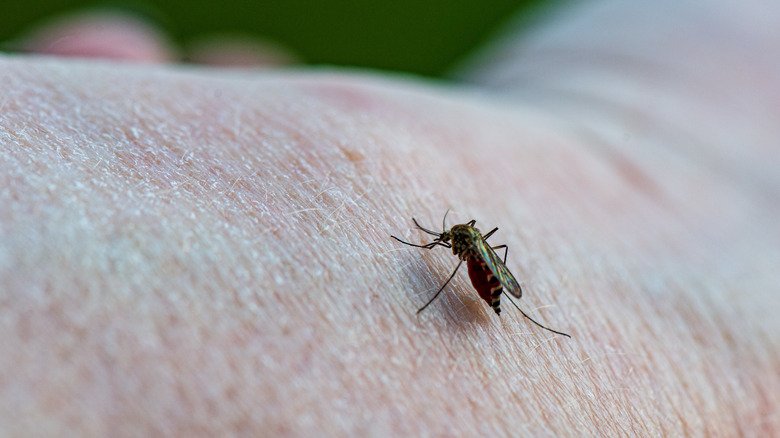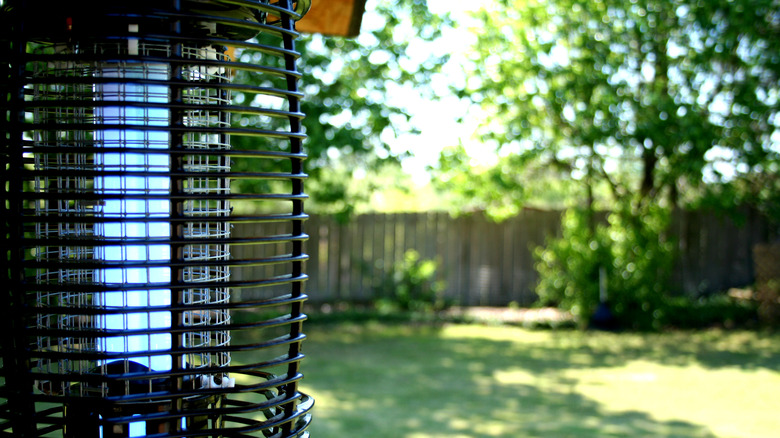Are Bug Zappers Really Worth Buying?
Bug zappers promise an outdoor environment where you don't have to swat every few minutes, but are they worth it? While bug zappers work to kill annoying bugs, they can also kill off bugs that are good for your garden and yard, too. While they may eliminate thousands of bugs from your backyard space over the summer, they may be doing more harm to the overall localized ecosystem in the process. Further, they may not be as effective as you think.
Many people who purchase bug zappers aim to get rid of mosquitoes and other biting, flying pests, and many of the products on the market promise to do this. They draw bugs in with an attractive light, luring them into the electrical field the zapper creates. When the insect touches the electrical grid, it's instantly killed. Moreover, they don't use pesticides or chemicals, which is an excellent benefit. However, researchers have found that the most common biting pests, like mosquitos, aren't all that interested in the zappers.
Several types of zappers exist, some of which emit a sound while others are silent and less detracting. Most are safe to use and designed with precautions to keep children and pets from being able to reach the actual grid, though accidents can occur. Many require an outlet to plug into, though solar-powered bug zappers are also available. Before you decide to buy one, though, it's good to consider the benefits and drawbacks.
Bug zappers offer some key benefits
The goal of a bug zapper is simple enough, and when it works well, it can help to reduce the number of insects that bother you while outdoors. They take very little to set up and start working, often featuring a simple plug-and-play setup. Once in place, they kill any pest that flies into them.
Bug zappers use nothing but light and electricity to work, alleviating any concerns related to chemical-based treatment of the pest. Some offer this coverage of an acre of land or more, giving you ample outdoor space without the worry of having to deal with pests. Some are even mobile, allowing you to take them with you wherever you go. Though different versions exist, many are easy to clean and maintain and can last for several seasons without much attention besides removing the dead bugs from them. Prices range widely, ranging from $20 up to $350 or more. Finding something in your budget may be possible.
Bug zappers have limitations and risks to keep in mind
You may think all flying insects in the backyard are fair game for bug zappers, but the ultraviolet (UV) light they tend to emit isn't likely to draw in the biting insects, including mosquitoes and biting flies. These zappers typically don't work against mosquitoes because those bugs can detect carbon dioxide and are very sensitive to it. If you're spending time outside, you're creating carbon dioxide with every breath. Even if the mosquitoes see the UV light, they are more likely to head toward the human breathing instead.
That's not the case for other bugs, including beneficial beetles and moths. These pests may be annoying when present, but they're actually very helpful in boosting the pollination of flowers. These pests are also an important source of food for beneficial backyard critters, like birds. Bug zappers could damage that delicate balance, which makes it harder for you to grow garden vegetables, fruit trees, and blooming flowers.
When determining if a bug zapper is worth it in your yard, it often comes down to determining what you wish to control. If you want to limit mosquitoes, remove water sources and other attractants. You can also use natural remedies for mosquito control, like a homemade mosquito spray featuring essential oils like witch hazel and rubbing alcohol.


